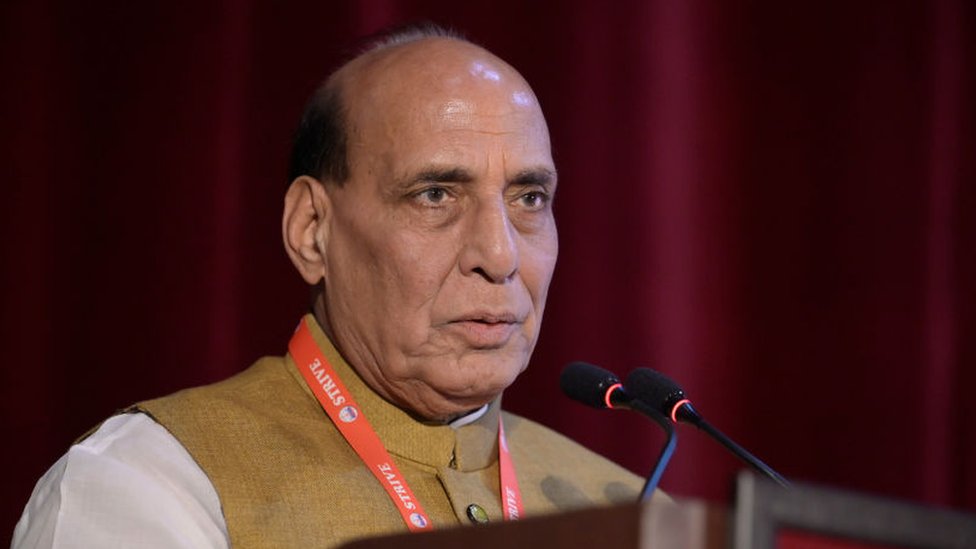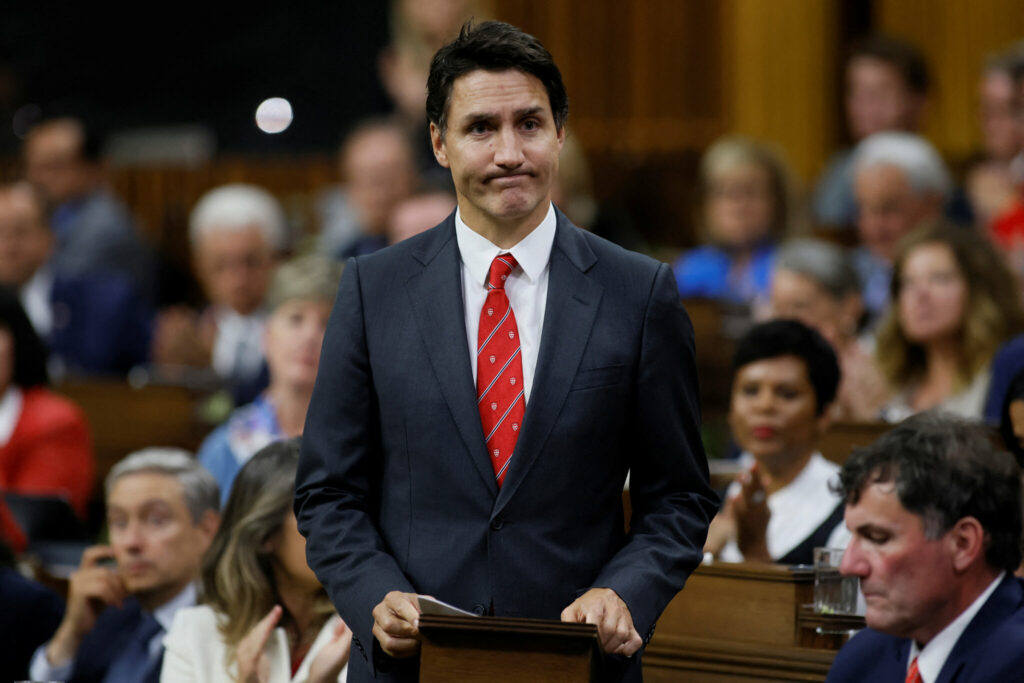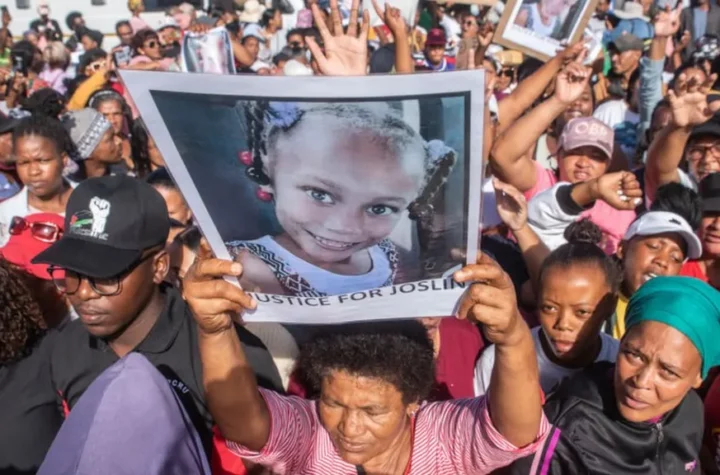
India and Pakistan are engaged in a war of words following a report that alleges Delhi’s involvement in a series of unlawful killings in the neighbouring country.
India has yet to provide an official response to the allegations, as reported by The Guardian newspaper last week.
However, on Friday, the defence minister of India made a strong statement, emphasising that those who disrupt peace in the country and flee to Pakistan will face severe consequences.
Pakistan has responded strongly, describing the comments as inflammatory.
The two countries have a strained relationship and have engaged in three conflicts since gaining independence in 1947.
In 2019, relations between India and Pakistan hit rock bottom after India conducted airstrikes on militant camps in Pakistan’s Balakot region. This action was in response to a suicide attack that claimed the lives of 40 Indian troops in Indian-administered Kashmir.
A terror group based in Pakistan, Jaish-e-Mohammad, took responsibility for the attack that occurred in Pulwama district.
Since then, a tense calm has settled over the countries’ relationship.
A recent escalation of tensions arose when The Guardian reported that India has allegedly been involved in the deaths of at least 20 individuals in Pakistan since 2020, as part of a larger strategy to eliminate terrorists residing in other countries.
The allegation arises several months after Canada also accused India of carrying out extrajudicial killings in the country – a charge that Delhi vehemently denies.
Furthermore, this development coincides with India’s upcoming general elections, scheduled to take place from 19 April. Pakistan is a sensitive topic in India and experts suggest that politicians, particularly from the ruling Bharatiya Janata Party (BJP), frequently exploit it for their own political gain by appealing to nationalist sentiments.
According to the report, the newspaper cited statements from “senior officials from two separate Pakistani intelligence agencies” who alleged that India’s spy agency – the Research & Analysis Wing (RAW) – played a direct role in the assassinations.
Unnamed officials have alleged that there has been a significant increase in India’s targeted assassinations in Pakistan and the West since 2023. These officials suggest that Delhi has taken inspiration from foreign spy agencies, which have been associated with extrajudicial killings in other countries.

According to the report, two Indian officials, who remain anonymous, claim that India made the decision to focus on dissidents outside of the country following the Pulwama attack in 2019.
“Following the Pulwama incident, there has been a shift in strategy to proactively address threats originating from outside the country,” stated an anonymous Indian intelligence operative.
“The attacks were unstoppable due to the presence of their safe havens in Pakistan. Therefore, we had to address the root cause,” he explained, emphasising that these operations required approval from the highest level of government.
India did not provide an immediate response to the allegations made by the newspaper. However, the report includes a quote from the foreign ministry referring to a previous denial by Foreign Minister S Jaishankar, stating that targeted killings in other countries were not the policy of the Indian government.
However, India’s Defence Minister Rajnath Singh made it clear on Friday that those who attempt to create chaos in the country will face severe consequences.
“If they flee to Pakistan, we will take necessary action in Pakistan,” Mr. Singh stated during an interview with CNN-News18 TV channel, addressing a question regarding the Guardian report.
After some time, Pakistan’s foreign office released a statement describing Mr Singh’s comments as provocative. “This short-sighted and reckless behaviour not only disrupts the peace in the region, but also hinders the potential for positive interaction in the future,” it stated.
Islamabad asserted that it had presented compelling evidence connecting India to extrajudicial killings within its borders. It urged the international community to ensure that India is held responsible for its unlawful actions.
The statement also mentioned that India’s claim of being ready to execute additional civilians without due process, labelling them as ‘terrorists’, within Pakistan, is a clear acknowledgment of responsibility.
India has yet to address the recent accusations made by Pakistan.
In September, Canadian Prime Minister Justin Trudeau made a statement suggesting a possible connection between the Indian state and the murder of Sikh separatist Hardeep Singh Nijjar.
India has refuted the allegations and stated that Canada has not provided substantial evidence to support the claim.
In November, the US also reported that they had disrupted a suspected plan involving an Indian citizen named Nikhil Gupta, who was allegedly plotting to harm Sikh separatist leader Gurpatwant Singh Pannun.
India has denied any involvement in the matter, but has stated that it is “cooperating” with US authorities.





More Stories
THE CITY WITHOUT LAWS IS SLAB CITY
An image of a Wild Orangutan Using a Herb to Cure his Wound
Meet the richest Family in the World, who Possess 700 Cars and Live in a $478 Million Home